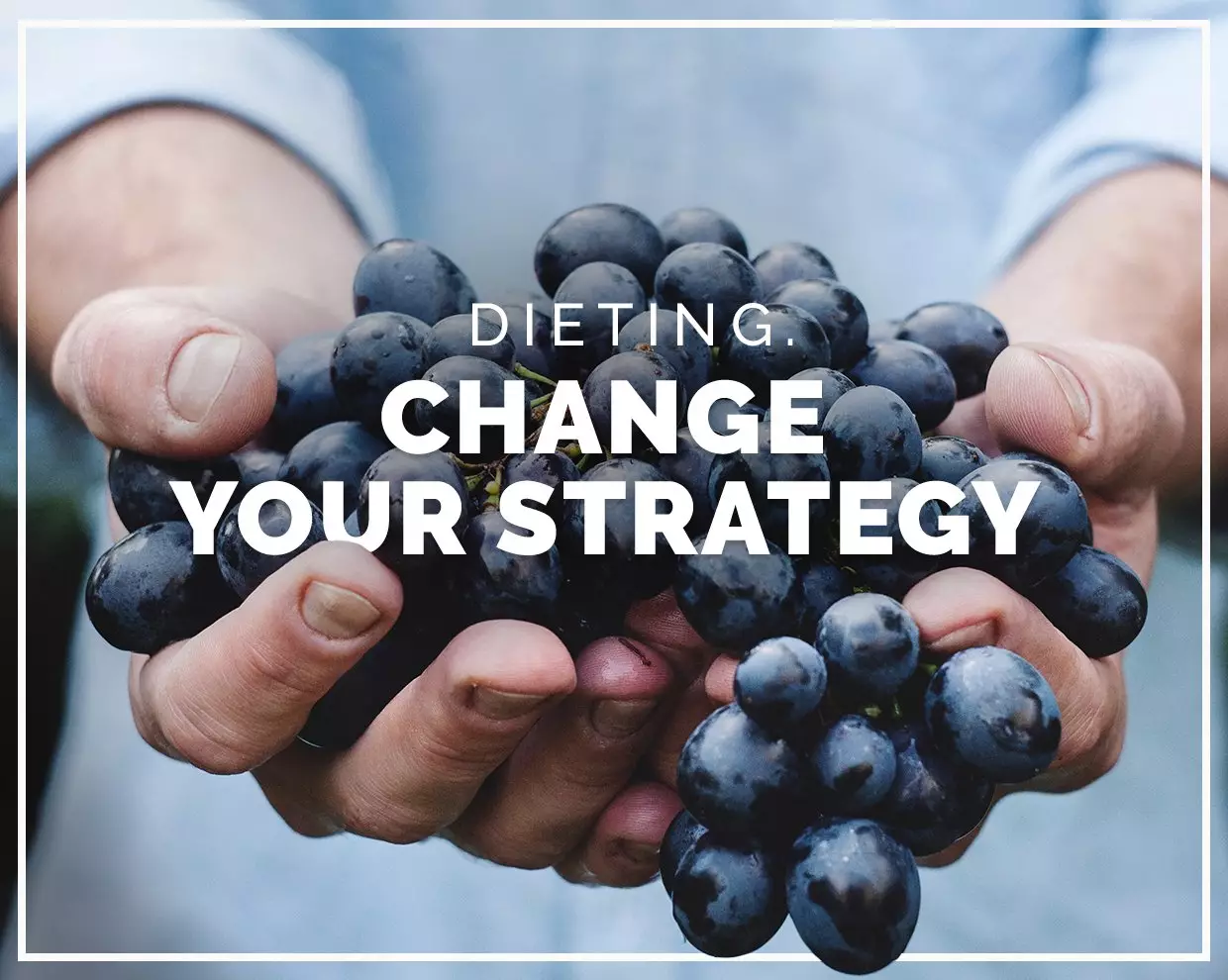Let’s be frank here, in general the idea of a diet is synonymous with short term changes aligned to an expectation of dramatic change and/or improvement.
These diets typically involve repeated cycles of drastic action and often coincide with key events like January after binge December, or getting ready for a friend’s wedding.
What is not considered is diet as a long term, life-focused strategy. We believe that the long term should be the focus.
Why then, does your diet matter?
Well, it depends entirely on what you want to get out of your life. If you’re like most people you probably want to lose a bit (or a lot!) of fat. Some of you want to gain muscle, or increase energy and focus.
Other goals we often hear through our coaching program and that you want to have clearer skin, be more confident in your body, not get sick as often, increase physical and mental performance, or just feel better all round.
Here’s the thing – searching for short term changes usually only results in short term results, and short-term satisfaction.
It’s time for a much longer-term mentality.
You probably already know that you get out of life what you put in. This is true of your body, and believe it or not, your mood and energy.
What you probably don’t know, is that well-balanced hormones are key to feeling happy, and getting the results that you seek.
Hormones can be negative affected by all sorts of influences.
This can include:
· Stress
· Anxiety
· Sleep quality
· Chemicals and toxins (think environmental pollution, personal care products and the cleaning products)
Diet also plays a massive role – what you really eat matters, and it’s probably the element you can control the most but where do you start?
WHAT TO EAT
A lot of people focus on what they can’t eat, and while that is a great idea, it sets most people up to fail. Instead focus on what you CAN eat, then you won’t have a feeling of missing out.
Eating the right ratio of protein, fats and carbs for you will increase your energy, mood and satisfaction after eating.
Some people just deal better with carbs than others, others feel better on protein.
Target 50-70% of calories from healthy fats, 20% from protein, 20% from vegetables, and 5% from fruit and starch is a good average. For optimal results, consume lots of diverse green vegetables and limit fruit or starch consumption to 1-2 servings per day in the evenings to avoid high triglycerides.
BE AWARE OF YOUR GOALS
What you should eat may also depend a lot on your goals.
You must be consciously aware of what you are looking to achieve, to put yourself in the best mental state to lose weight, boost your energy, balance hormones and improve cognitive function.
EAT SEASONAL, EAT CLEAN AND EAT LOCAL.
We encourage eating with the seasons, nature typically knows what foods best serve us through the different demand of the different seasons.
One of the best ways to work out what is in season is to do your shopping at the farmers market. Buying at farmer’s markets are often cheaper because that foods there are locally sourced, direct from the grower and supplies are abundant when in season.
You often also find reasonably priced organic produce at farmers markets, a great start at eliminating toxins that can screw up your hormones.
Try eating slower, being mindful of chewing your food. Believe it or not, you will get fuller quicker and learn to eat only till you’re satisfied.
EATING RIGHT FOR YOU
Try eliminating gluten and dairy, often these have a major impact on most of our performance the next day.
We always recommend looking at what is really going on inside via some simple lab testing.
The lab tests can check for any intolerances or nutrient deficiencies that you don’t know about which may be causing things to not work as well as they should – we can also assist in providing you with this service.
Finding out what food your body needs for functional health and vitality is one of the greatest things you can learn about yourself!
It helps to check in with yourself using a couple of guidelines to make sure you’re eating right for you:
What to avoid
There are some things that should always be avoided for optimal health.
· Bad fats (margarine and other artificial trans-fats, oils made from GMO grains, and vegetable fats)
· Sugar
· Soy products
· Wheat, grains, millet, gluten
· Cheese, powdered milk, conventional ice cream, condensed or evaporated milk
· Artificial sweeteners (aspartame, sucralose, acelsulfame potassium)
· Commercial dressings and spices, MSG, yeast, caseinate
· Low-fat anything – this usually mean they’ve added a lot of sugar or other ingredients to simulate that full fat feel
· Foods that are heavily sprayed with pesticides, fungicides and herbicides
Basically, if you avoid deep fried, pre-packaged prepared meals and sauces, you are 95% of the way there.
WHEN TO EAT
Eat when you’re hungry, stop when you’re satiated, and try not to snack.
Also eat mindfully and don’t get up and run around after eating to give your body the best chance at getting some nutrients from the meal. Also don’t eat too late in the evening, you want to eat your meals at least 2 hours before bed.
CREATE A NEW STRATEGY
As you have read, creating long lasting gains is as easy as creating a long-lasting diet strategy, not a short-term instant fix diet intervention. By taking more ownership of what you are fuelling yourself with, you will have more balanced and happy hormones in turn giving you longer lasting health benefits.

 UK Store
UK Store  NZ Store
NZ Store AU Store
AU Store EU Store
EU Store









